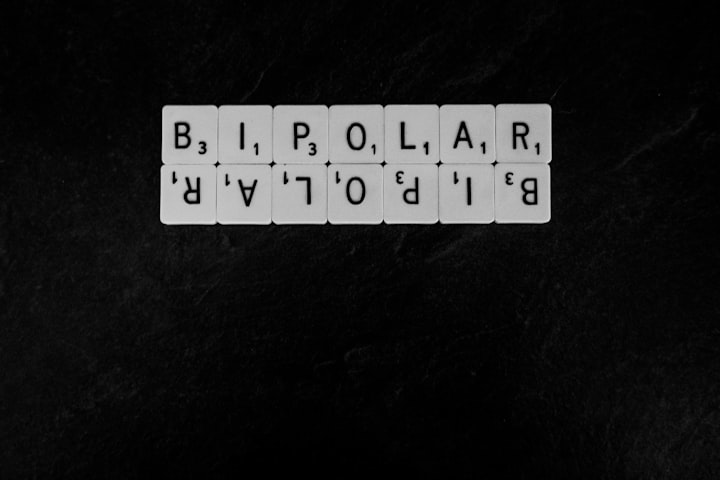How Bipolar Disorder Can Affect Relationships: Tips for Managing and Maintaining Healthy Connections
How Bipolar Disorder Can Affect Relationships: Tips for Managing and Maintaining Healthy Connections

Bipolar disorder is a mental illness that affects millions of people worldwide. It is a chronic condition that causes extreme mood swings, including episodes of mania and depression. These mood swings can have a significant impact on a person's relationships, including family, friends, and romantic partners. In this article, we will explore how bipolar disorder can affect relationships and provide tips on how to manage and maintain healthy relationships when living with bipolar disorder.
What is Bipolar Disorder?
Bipolar disorder, also known as manic-depressive illness, is a mental illness that causes dramatic shifts in mood, energy, and activity levels. People with bipolar disorder experience episodes of extreme highs (mania or hypomania) and lows (depression) that can last for days, weeks, or months.
During a manic episode, a person may feel euphoric, have increased energy, talk rapidly, engage in risky behavior, and experience grandiose thoughts. They may also have trouble sleeping, feel irritable or agitated, and have difficulty concentrating.
On the other hand, during a depressive episode, a person may feel sad, hopeless, and lethargic. They may have trouble sleeping, lose interest in activities they once enjoyed, and have difficulty concentrating.
Bipolar disorder can be challenging to diagnose because its symptoms can mimic other mental health conditions, such as depression or anxiety. However, with proper diagnosis and treatment, many people with bipolar disorder can manage their symptoms and lead fulfilling lives.
How can bipolar affect relationships
Bipolar disorder can have a significant impact on a person's relationships. The extreme mood swings associated with bipolar disorder can make it difficult for a person to maintain healthy relationships with their family, friends, and romantic partners.
During a manic episode, a person with bipolar disorder may engage in reckless behavior, such as overspending, gambling, or using drugs or alcohol. They may also become irritable or agitated, which can lead to conflict with others.
On the other hand, during a depressive episode, a person with bipolar disorder may withdraw from their loved ones and lose interest in activities they once enjoyed. They may also have difficulty communicating their needs or feelings, which can lead to misunderstandings and frustration.
In addition to the symptoms of bipolar disorder, the side effects of medication can also impact relationships. Some medications used to treat bipolar disorder can cause weight gain, sexual dysfunction, or other side effects that can affect a person's self-esteem and confidence.
Managing Relationships When Living with Bipolar Disorder
Living with bipolar disorder can be challenging, but it is possible to manage the condition and maintain healthy relationships. Here are some tips on how to manage relationships when living with bipolar disorder:
Educate Yourself and Others
One of the most important things you can do when living with bipolar disorder is to educate yourself and your loved ones about the condition. Learn about the symptoms of bipolar disorder, its causes, and its treatment options. Share this information with your family, friends, and romantic partners so they can better understand what you are going through.
Communicate Openly and Honestly
Communication is key to maintaining healthy relationships when living with bipolar disorder. Be open and honest with your loved ones about how you are feeling and what you need from them. If you are experiencing symptoms of bipolar disorder, let them know so they can provide support and help you manage your symptoms.
Stick to a Treatment Plan
Following a treatment plan is essential for managing bipolar disorder and maintaining healthy relationships. Take your medication as prescribed and attend therapy appointments regularly. If you are experiencing side effects from your medication, talk to your doctor about adjusting your dosage or trying a different medication.
Practice Self-Care
Taking care of yourself is essential for managing bipolar disorder and maintaining healthy relationships. Make time for activities that you enjoy, such as exercise, meditation, or creative hobbies. Get enough sleep, eat a balanced diet, and avoid alcohol and drugs. By taking care of yourself, you will be better able to manage your symptoms and maintain healthy relationships.
Seek Support
Living with bipolar disorder can be isolating, but you don't have to go through it alone. Seek support from a therapist, support group, or trusted loved one. Having a support system can provide comfort and understanding during difficult times.
Be Patient and Understanding
Living with bipolar disorder can be unpredictable, and mood swings can be challenging for loved ones to understand. It is essential to be patient and understanding with yourself and your loved ones. Remember that bipolar disorder is a medical condition that requires treatment and support.
Set Boundaries
Setting boundaries is crucial for maintaining healthy relationships when living with bipolar disorder. Communicate your needs and limitations to your loved ones, and be willing to compromise. Establishing clear boundaries can help prevent conflicts and misunderstandings.
Conclusion
Living with bipolar disorder can be challenging, but it is possible to manage the condition and maintain healthy relationships. By educating yourself and your loved ones, communicating openly and honestly, following a treatment plan, practicing self-care, seeking support, being patient and understanding, and setting boundaries, you can live a fulfilling life with bipolar disorder. If you or a loved one is struggling with bipolar disorder, seek help from a mental health professional or support group. With proper treatment and support, many people with bipolar disorder can lead healthy and fulfilling lives.





Comments
There are no comments for this story
Be the first to respond and start the conversation.